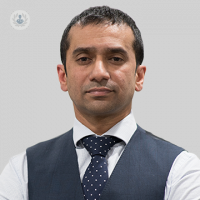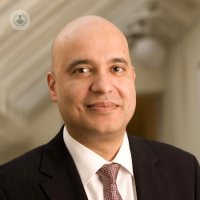Paediatric ENT
Mr Richard Hewitt - Paediatric otolaryngology
Created on: 11-13-2012
Updated on: 04-26-2023
Edited by: Conor Lynch
What is paediatric ENT?
ENT is a medical subspeciality that deals with the prevention, diagnosis, and treatment of conditions that affect the ear, nose, and throat in children.
What conditions are treated under paediatric ENT?
There are some disorders that almost uniquely affect children. The most commonly treated conditions within paediatric ENT are:
- Hearing problems
- Otitis
- Allergies
- Tonsillitis
- Adenoiditis
- Apnoea
- Snoring
- Sinusitis
- Swallowing issues
- Cysts
- Head or neck deformities
Seromucinous otitis, also known as glue ear, is the most common reason for hospital admission for an operation and the most common cause of hearing loss or deafness in children.
Issues with the tonsils are also a very common reason for appointments within paediatric ENT. The tonsils are located at the back of the throat and they are the first line of defence against potential infections.
Hearing loss is also very common in children. It can be more difficult to study and treat in children due to their inability to communicate their symptoms in the same way an adult could.
What other sub-specialities does paediatric ENT include?
Paediatric ENT uses other medical specialities to treat each issue, they include:
- Rhinology: subspeciality that studies nasal disorders, paranasal sinuses, and nose surgery for functional and/or aesthetic purposes.
- Laryngology: studies the changes with the larynx or the voice box.
- Audiology: sub-speciality that deals with hearing loss and deafness.
- Otoneurology: focuses on medical conditions associated with vertigo (Ménièr’s disease, otosclerosis, and other balance-related issues), as well as secondary hearing loss or chronic ear infections.
- Speech therapy and phoniatrics: treats speech disorders.
When your child needs to see a paediatric ENT specialist?
It is advisable to see an ENT specialist when a child has:
- Persistent or recurrent ear issues.
- You suspect a language acquisition delay which may be due to a hearing impairment.
- The child is not responding to the treatment provided by the GP.
- The child has been given many medications, injections, or had different procedures carried out without a clear diagnosis.


















